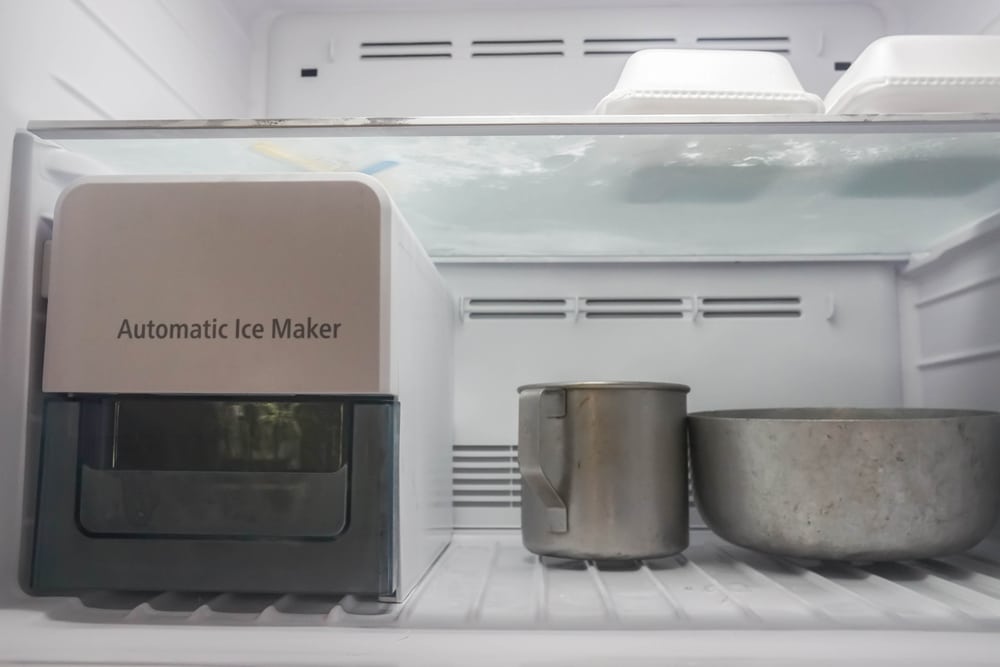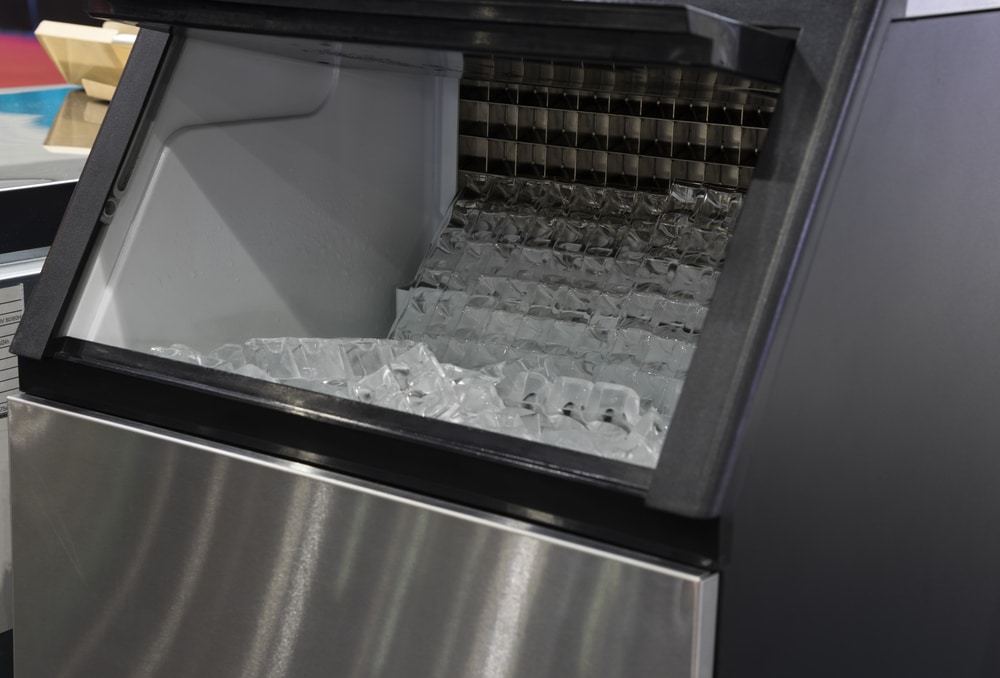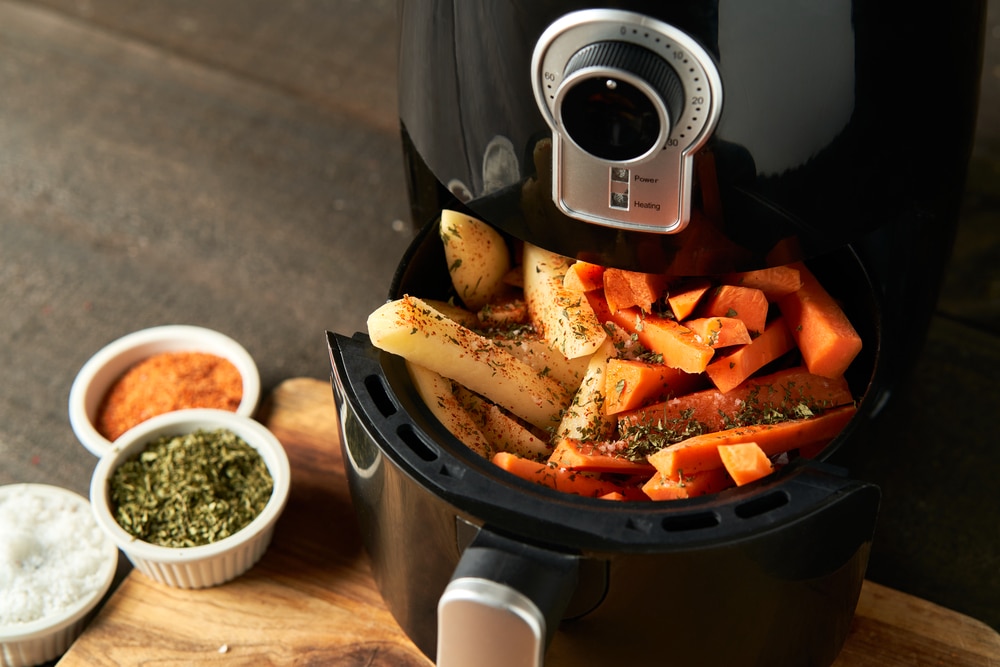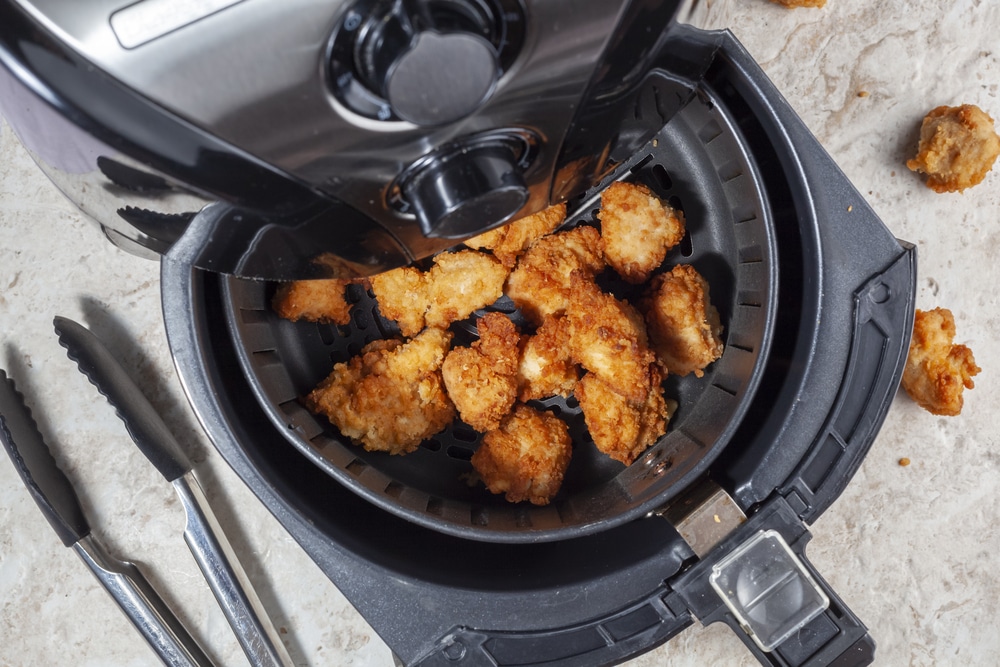Last Updated on
Ice machines are a common convenience found in many homes and businesses. They’re the unsung heroes of the party, keeping our drinks cool and crisp for hours.
But are ice makers safe? These appliances can actually be breeding grounds for dangerous bacteria and other contaminants if not properly maintained. And, if left unchecked, these pathogens can infect your customers, putting their lives at risk. Consequently, this may damage your reputation, reduce revenue, or force the closure of your business.
In this post, we’ll explore what makes ice machines unsafe and what you can do to protect yourself from potential risks. Keep reading to learn more.
What Makes Ice Machines Unsafe?
Poor hygiene among users is the primary reason that renders ice makers unsafe. It can spread germs through dirty hands, dirt on the floor, and other unclean contact areas. And because of their placement in food service settings, they’re more susceptible to contamination than other appliances.
While you’d expect that the freezing conditions of these machines would destroy any pathogens present, this is far from the truth. Many bacteria, such as E. coli, Shigella, and Salmonella, can survive on ice and for a long time too.
If left unchecked, some of these contaminants may find their way into your favourite drink and cause you a lot of unnecessary grief. Symptoms vary depending on the illness, but they commonly comprise nausea, vomiting, diarrhoea, fever, and abdominal cramps.
To avoid these unpleasantries, users must practice proper ice-handling techniques when operating an ice maker. Also, ensure to clean your machine thoroughly and regularly. We’ll go over each of these points in further detail later in the post.
How to Keep Your Ice Machine Free of Contaminants
Ice makers are commonplace in restaurants, cafeterias, convenience stores, and other commercial establishments. While these machines may seem harmless, they can be a significant source of food-borne illness if not properly maintained and used. Here are various ways to ensure this doesn’t happen:
Regular Cleanings
Like any other product, ice machines require regular cleaning to prevent the build-up of bacteria, yeast, mould, and other undesired particles. If not addressed, these contaminants may infect the ice supply, posing a health hazard to customers.
Clean and sanitise the machine’s interior and exterior surfaces with approved disinfectants or cleaners at least once weekly.
Ice Scoops Care
Regularly clean and sanitise the ice scoop to reduce the risk of contamination. When making ice for drinks, never use a scoop previously used for something else, such as scrapping fruit salad or lettuce on sandwiches. When done, store it in a clean container outside the ice bins until needed again.
Inspect Parts and Gaskets
Remove and inspect all visible parts and gaskets for leaks, damage, dirt, food residue, corrosion, rust or other problems. Replace or dispose of anything that is no longer fit for use. If you’re unskilled, consult a qualified ice machine technician before carrying out any repairs.
Keep the Machine Covered
To keep your ice maker free from dirt and dust, cover it when it is not in use. A custom-designed cover should offer protection while allowing the unit to operate effectively. Ensure this is also clean; otherwise, it’ll trap grime and contaminate the water.
Replace Water Filters
Water filters remove impurities from the water before it enters an ice maker, minimising contamination. A typical one lasts six months but can vary depending on your water quality and frequency of use. Change them as necessary for optimal performance. Check the owner’s manual for detailed instructions on your model’s filter type.
Monitor Water Quality
Water quality is key to maintaining a clean, healthy environment in your kitchen. Invest in an inline water filter or reverse osmosis system for your unit to monitor water quality and keep it as pure as possible. Also, when refilling the machine’s reservoir, use distilled water, as tap water contains harmful minerals that may impede freezing.
Use Test Strips
Test strips are an easy way to measure the level of contamination in your ice supply. Simply dip one into the water from your ice machine and wait for it to change colour accordingly. Check for sanitation levels monthly by comparing results with the chart on your test strip package.
Avoid Using Hands
It’s pointless to follow all the preceding regulations if you don’t wash your hands. Unwashed hands are the main culprits in contaminating an ice machine. Instead, use tongs, spatulas, scrapers, or scoopers to avoid touching the inside surfaces.
How Often Should You Clean Your Ice Machine?
Typically, you should disinfect your ice maker regularly and do a deep clean at least once every six months. Deep ice machine cleaning entails disassembling the machine and cleaning all surfaces, whilst normal disinfecting is performed by running the unit with an approved sanitiser.
While you can handle simple routine cleaning, a deep clean should be undertaken by a qualified ice machine cleaner. Professional cleaners have the tools and experience to identify issues that may be obscure to untrained eyes. They’ll also advise you on how best to maintain your machines to avoid costly repairs and downtime.
Consult the owner’s manual before performing any of these tasks for safety purposes. And always remember to unplug the appliance before starting any maintenance task, including wiping exterior surfaces.
Sanitising an Ice Maker
Employees should clean, disinfect and sanitise the ice maker frequently using diluted EPA-approved cleaning solution or food-grade bleach. Please read the label for the dilution rates and follow the instructions to ensure you’re doing it correctly.
If an ice machine’s surface is wet or leaks, contact a professional to resolve the issue before beginning any clean-up.
Here’s a step-by-step approach to cleaning an ice machine’s exterior and ice bin:
- Spray all surfaces with the disinfecting solution to remove dust and debris. Wait for about 10 minutes to allow it to penetrate the pores of the metal.
- Reapply the disinfectant to the surfaces and let it sit for another 10 minutes to remove excess residue.
- Thoroughly rinse all surfaces with fresh water to remove all traces of the disinfectant.
- Wipe or spray the areas with a sanitising solution to kill any remaining germs.
- Allow the sanitiser to sit for two minutes before reapplying it. After the time has elapsed, don’t rinse it; instead, let it air dry.
- Unclog the ice dispenser drain pipe by removing debris, then pour undiluted bleach into the tray.
Do You Need Professional Cleaning Services?

Some parts of these machines are hard to reach and may require tools and skills to disassemble. A professional cleaner specialising in ice makers is your best bet.
They’ll thoroughly clean and sterilise every inch of your ice machine with approved detergents and chemicals. Cleaning services typically include draining water lines and hoses that carry fresh water into the unit. Like every other part of the machine’s plumbing system, these lines must be disinfected.
The technician will also drain any condenser coils outside the unit and inspect them for signs of corrosion. Condensers often accumulate minerals over time and eventually lead to malfunctions. It’s imperative to clean them at least once a year.
But besides cleaning, the technicians will also inspect your machine’s seals, motors, and other components to ensure that everything is in tip-top shape. They’ll perform chemical tests to evaluate water hardness and make sure the ice maker produces clean and safe ice.
Finally, they’ll provide you with a full report about the machine’s condition and offer any recommendations for future maintenance. Most importantly, if anything needs replacing or adjusting, your technician will recommend the right solution without charging you an arm and a leg.
Regular Cleaning Is Key
Every business strives to provide the best experience possible to its customers. While ice machines are prone to contamination, they’re safe if handled properly. Keep them in excellent condition by cleaning them regularly. Importantly, wash your hands before touching an ice maker or its parts.
Paul is the type of person who never met a problem he couldn’t fix. He can always be found tinkering with something in his house, even if it isn’t broken! His tips and tricks are often shared on our site. He’s the one you call when something breaks because he has been known to improvise fixes for everything from leaky faucets to malfunctioning dryers.



